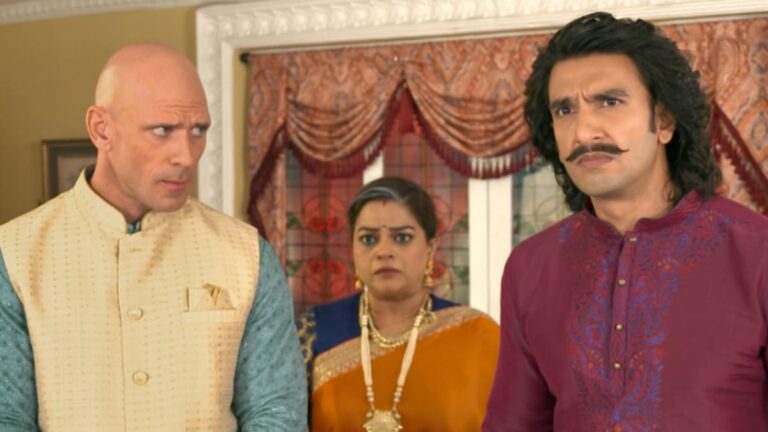Prerna Kathuri (name changed on request), a Moradabad-based housewife, is fighting a silent battle. Her husband suffers from various problems related to sexual health, such as low libido, erectile dysfunction and premature ejaculation. In a country where even the mention of the word “sex” is considered taboo, Kathuri has never been able to discuss her problems with a gynecologist, even after ten years of marriage. She also doesn’t know that there are experts trained to discuss these problems and find solutions.
Kathuri is not the only one. According to a report published by Elda, a Bangalore-based women’s healthcare startup Health
According to Dr Prateek Makwana, consultant embryologist and director of Vasundhara Hospital, Jodhpur, infertility is a very sensitive subject and most people ultimately consider it a medical problem. However, sexual dysfunction remains a taboo and a common pathology among men and women around the world. India
“There is greater awareness in Europe and America, and their acceptance of these issues, as well as research aimed at improving the situation, is visible to all. We are still creating a safer place where people can talk about sexual health or wellness,” says Makwana, who is also the director of Vasundhara IVF (Jaipur, Bikaner and Lucknow).
Sex education is key
In the medical world, topics like reproduction, gynecology and andrology are often brought up in discussions about sexual health, but it is important to know that there are other broader issues such as sexual behaviors, feelings and interactions, sexual orientation and gender identity, sexual expression, relationships. , and even pleasure.
It is in such a context that sex education becomes important. Unfortunately, sex education is not included in many mainstream medical curricula globally. In India too, sexual medicine is not yet recognized as a specialization unlike its counterparts like gynecology and urology, among others. “This does not change the fact that India faces sexual health issues with the same incidence as any other country with a similar population. Additionally, sex education has been kept out of school and college curricula – and in states like Karnataka
Singh’s Allo Health, a health tech startup specializing in sexual health and wellness issues, has facilitated over 30,000 consultations related to sexual health concerns and issues with a team of over 35 doctors and psychologists offering treatments online and in clinics in Bengaluru, Delhi, Gurugram. and Mysore.
In a welcome change, many doctors, on an individual level, have begun to take responsibility for talking about topics that typically fall under the umbrella of sex education in their work and community engagement activities. “I meet doctors who cover specific topics like contraception, safe sex, STIs and others that doctors are now talking about using their existing networks and platforms. However, sex education includes a multitude of different topics, including consent, relationships, mitigating abuse, and enhancing pleasure, which do not require medical intervention. To be able to teach these topics meaningfully, you need to develop an approach that considers gender and age groups, whether you have a medical degree or not,” adds Singh.
According to Allo Health’s sex education survey conducted last year among 8,625 participants in India, 72.41% of individuals did not receive any form of sex education while studying in school or to college. In the absence of structured sex education in India, people have turned to alternative means to gain knowledge about sex and sexuality. Around 57.32% of respondents admitted to using pornography (videos and literature) as a source of sex education.
Become intimate
Sex therapy is a relatively new profession and a industry
According to Seghetti, sex therapists treat cases of sexual trauma and conditions such as erectile dysfunction, premature ejaculation and vaginismus, and work with urologists, dermatologists, gynecologists and pelvic floor specialists to rule out any causes. physiological. “However, way of life
Pallavi Barnwal, another intimacy coach and founder of sexual wellness startup Get Intimacy, also believes that in India, sexual wellness, being a multi-faceted and diverse discipline, is not recognized, unlike the West. “In the West, there are practicing sex educators, counselors and sex therapists.
Sex education, sexuality counseling and sex therapy are three distinct disciplines and areas of expertise. An educator mainly runs workshops, teaches sex education and organizes and leads seminars. A counselor works in a clinical or medical setting and gives specific suggestions and advice. A therapist works with couples, singles and individuals on various sex-related issues. “Each of these disciplines requires its own set of skills and knowledge,” adds Barnwal. In India, sexology is largely reproductive and physiological, focusing on the genitals and reproductive organs.
Over the years, especially during the pandemic, many advisors have gained popularity on social media. One of them is sex counselor Neha Mehta, who has over 449,000 followers on Instagram. “A lot of us started talking about it on social media because it’s obligatory. During Covid, when the online trend started, our consultations moved online and the need to connect and talk became essential. As caregivers for couples who do not talk about it openly, even fearing to go to the doctor, coaches do certification courses while psychologists do diplomas or at least 6 months of internship or fellowship with of a psychiatrist to practice it,” she adds.
There is a huge demand for sex advice and education-related services, especially with the rise of dual-income households, Instagram-savvy generation and individuation, estimates Barnwal, who has 239,000 followers on Instagram. Consultation fees for sex counselors can vary between 4,000 and 21,000 euros and vary depending on the number of sessions.
